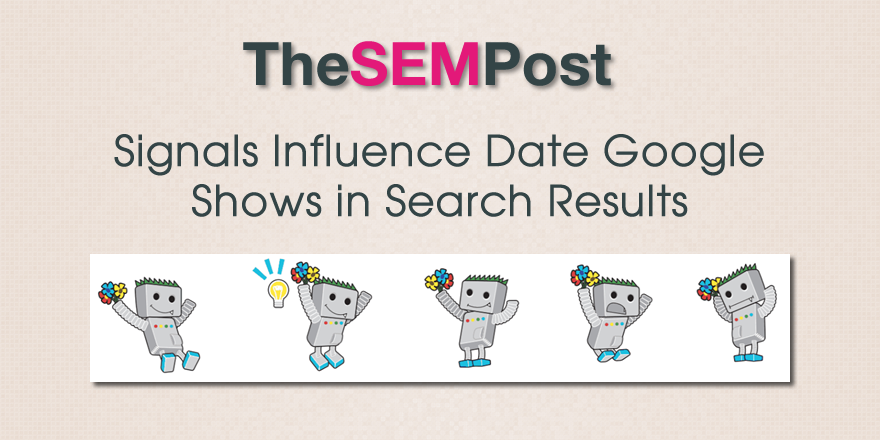 How does Google choose the date – if any – that is shown within the search results description? While it is often the publish date, sometimes it is an updated date. And why do some sites display a date for their dated content, while others do not?
How does Google choose the date – if any – that is shown within the search results description? While it is often the publish date, sometimes it is an updated date. And why do some sites display a date for their dated content, while others do not?
The question came up on Twitter by someone noticing that Google seemed to be adjusting how they choose the date to display. John Mueller responded, and it seems it isn’t as simple as Google picking one date or the other to display. But rather, there are multiple signals being used.
We use a variety of signals to determine which date to show, or if it makes sense to show one at all; it’s not tied to one specific attribute.
Unfortunately, he doesn’t reveal the criteria for how Google chooses whether to display a date or not, or what date to be used in the search results. Nor what other signals besides the dates themselves are being used to determine it.
For example, the Google Panda Algo Guide shows the publish date not the refresh date, despite there being a modified date tag being used:

But the person who asked John Mueller on Twitter noticed the opposite, that Google was pulling the modified date to display. So it doesn’t seem that it is a universal change for all search results, but something specific to the site or page.
Because Google would have an original version of the page, it is possible that the modified date might only show if they also detect the page has been significantly updated, and not merely a date change. This is a hot topic for sites that have evergreen content, especially when the content is still relevant, even if it is a few years old. Gary Illyes has discussed about publishers who are faking dates as a way to make their content look fresher than it really is, and its impact on those sites and their dates in the search results. So it makes sense if Google tracks it.
There have been instances where the dates Google chooses were not the best one. For example, there was a bug where sites were displaying the date from a video embed in the search results, which resulted in some content seeming to be much older than it was, simply because the YouTube video embedded was an older one, until it was fixed.
So if you are trying to influence the date Google is using to display in the search results, or trying to get Google to display one, other than making sure you actually including the date in your source code Google can crawl and index, Google will use their own algo to make the decision.
We use a variety of signals to determine which date to show, or if it makes sense to show one at all; it's not tied to one specific attribute. Still, I'm curious to hear how you're serving dates on your pages! Do you have some examples? Thanks!
— John ☆.o(≧▽≦)o.☆ (@JohnMu) March 26, 2018